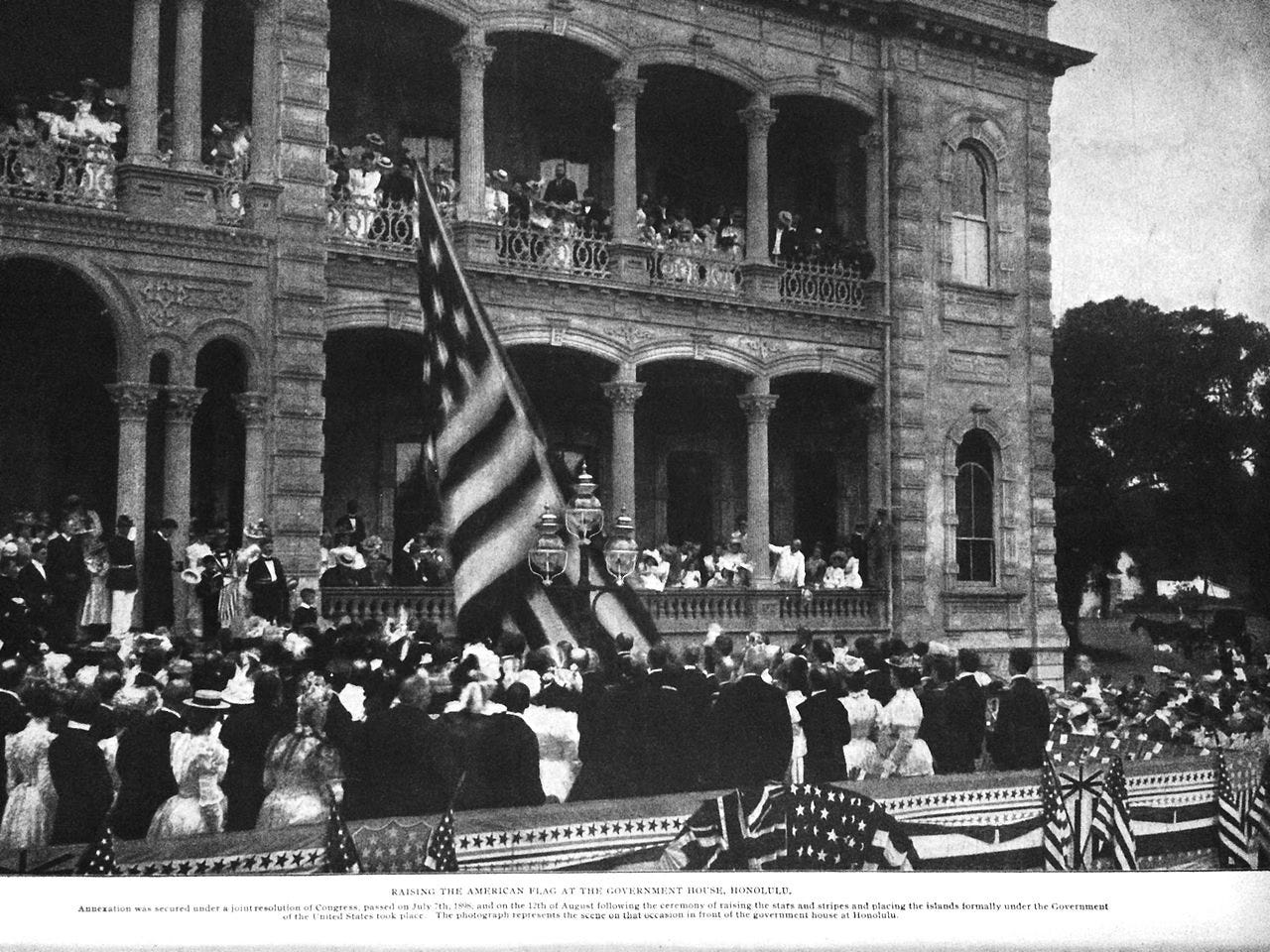This Day in Legal History: Newlands Resolution
On July 7, 1898, President William McKinley signed the Newlands Resolution, formally annexing the Hawaiian Islands into the United States. Unlike traditional territorial expansion through treaties, this annexation occurred via a joint resolution of Congress—an unusual and legally contested mechanism. The resolution was named after Representative Francis Newlands of Nevada and passed by a narrow margin, reflecting deep divisions over imperialism, expansion, and national identity. Supporters argued that annexing Hawaii would bolster American strategic and economic interests, particularly as the U.S. was engaged in the Spanish-American War and needed a naval base in the Pacific.
The legality of annexation by joint resolution, as opposed to treaty ratification requiring a two-thirds Senate majority, sparked constitutional debate. Critics contended that this method sidestepped constitutional checks and amounted to imperial overreach. Native Hawaiians had overwhelmingly opposed annexation, as demonstrated in the Kūʻē Petitions signed by over 20,000 islanders. The resolution disregarded this opposition, cementing a colonial dynamic that would echo in future U.S. territorial acquisitions.
The annexation also laid the groundwork for the eventual formation of the Territory of Hawaii in 1900 and its statehood in 1959, though not without continued controversy and calls for sovereignty. Legally, the Newlands Resolution exemplified the flexibility—and limits—of congressional authority in foreign affairs and territorial governance. It also introduced enduring questions about consent, self-determination, and the legitimacy of U.S. expansionism under constitutional law.
This event highlights how domestic legal processes were used to justify international actions, revealing tensions between democratic ideals and imperial ambitions.
A rare trial is beginning in Boston over a lawsuit challenging the Trump administration's policy of deporting international students and faculty involved in pro-Palestinian activism. The case was brought by academic groups including the American Association of University Professors and the Middle East Studies Association. It centers on actions taken after Trump signed executive orders targeting non-citizens with so-called "hateful ideology" and promising to fight antisemitism. Plaintiffs allege that these directives led the State and Homeland Security Departments to revoke visas and detain students like Columbia graduate Mahmoud Khalil and Tufts student Rumeysa Ozturk, both of whom were targeted after expressing pro-Palestinian views.
Unlike most Trump-era immigration cases, this one is proceeding to a full trial rather than being decided early by a judge. U.S. District Judge William Young emphasized that a trial is the best path to uncover the truth. Plaintiffs argue the policy violates the First Amendment, accusing the administration of suppressing political dissent on college campuses. The administration denies a deportation policy exists, claiming decisions are made based on security concerns, not ideology. Homeland Security officials insist the U.S. won’t tolerate advocacy that they perceive as violent or anti-American.
The trial outcome could shape how immigration authorities interpret and apply free speech protections to non-citizens in academic settings. It’s only the second Trump-era policy case to reach trial under Judge Young, who has publicly criticized the judiciary for avoiding fact-finding through trials.
Apple has formally appealed a €500 million ($587 million) fine imposed by the European Commission for allegedly violating the Digital Markets Act (DMA). The Commission found that Apple restricted app developers from directing users to more affordable options outside its App Store, which regulators said limited competition and consumer choice. Apple filed its lawsuit at Europe’s second-highest court on the last day allowed for appeal, arguing that the fine is excessive and that the EU is overreaching by trying to dictate how it operates its App Store.
The company claims it altered its policies to comply with the DMA and to avoid further daily fines, which could amount to €50 million per day. Apple also contends that the Commission's demands are both confusing for developers and harmful to users. Despite the changes, EU regulators are still reviewing the company’s new terms and have solicited feedback from app developers before deciding if additional enforcement is needed.
The case is part of broader efforts by the EU to rein in the influence of major tech companies and ensure fair digital market practices under the newly implemented DMA.
Apple takes fight against $587 million EU antitrust fine to court | Reuters
Maryland Legal Aid (MDLA), a critical legal support system for low-income individuals, especially women and domestic violence survivors, is facing a potential funding crisis due to the Trump administration’s 2026 budget proposal. The proposal includes $21 million to close out the Legal Services Corporation (LSC), which provides federal funding to 130 nonprofit legal aid programs across the country, including MDLA. This move would eliminate a key source of support for clients like a Moroccan immigrant mother in Baltimore, who received urgent legal help from MDLA while still hospitalized from domestic abuse.
LSC-funded services assist people earning at or below 125% of the federal poverty line, a group that includes a significant portion of Baltimore residents, where one in five people live in poverty. MDLA, the largest legal aid provider in the state, operates 12 offices and assists hundreds of clients each week with issues like eviction defense, expungement, and protection from abuse. Despite receiving only 14% of its funding from LSC, losing this support would result in fewer clients being served at a time when demand is growing.
Staff at MDLA describe their work as essential, often likening their intake offices to emergency rooms. Without legal aid, tenants and abuse victims often face court alone, without understanding their rights. Advocates say that legal aid services prevent homelessness, violence, and broader social harm. While similar efforts to cut LSC funding have failed in the past, the current budget process will determine if the latest proposal gains traction.
Legal Aid That Helped Abuse Victim Threatened with Trump Cuts













